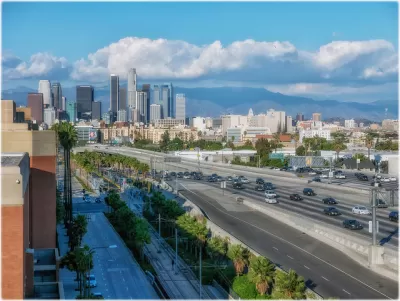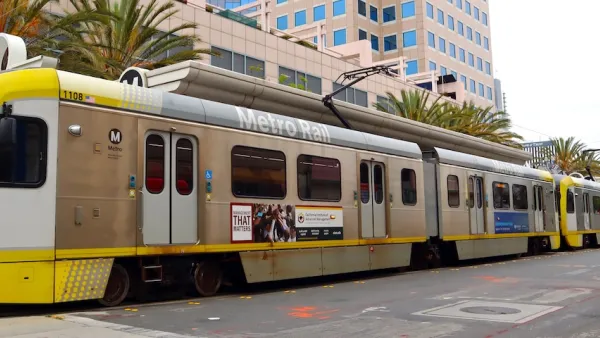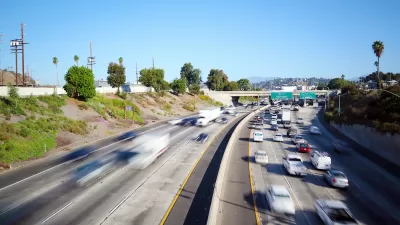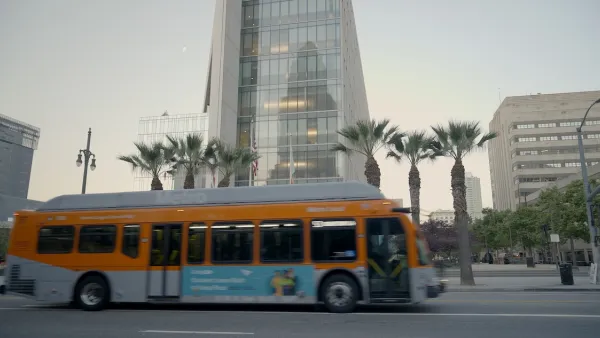L.A. Metro’s plan to add hundreds of miles of new traffic lanes is projected to increase carbon emissions by 10 million metric tons.

In an op-ed for the Los Angeles Times, founder of Streets for All Michael Schneider argues that despite a plan to build more than 100 miles of rail and new bus and bike lanes, the Los Angeles County Metropolitan Transportation Authority (Metro), with its current transportation plan, will encourage people to drive more miles.
According to Schneider, “just as Metro is spending tens of billions building rail and bus projects, it also plans to spend billions adding 363 miles of new highways and arterials. According to Metro’s own calculations based on state standards, this will increase vehicle miles traveled by up to 36.8 billion, and emit an additional 10.1 million metric tons of CO2”—more than three times the number of miles driven that Metro could eliminate through its. transit efforts. As Schneider puts it, “The expansion of highways will do far more harm than the expansion of mass transit will avert.”
Huge investments of the past have shown the folly of expanding highways to address traffic congestion. In the recent past, we spent $1 billion to add a lane in each direction onto the 405 in West Los Angeles. In less than 12 months, traffic had grown worse than it was before the project
Schneider writes, “If Metro is serious about building a more sustainable future, it must stop investing in expanding highways.” and instead invest in projects that make it easier for Angelenos to use transit, walk, and bike safely.
FULL STORY: Op-Ed: L.A. is spending tens of billions of dollars to make climate change and traffic worse

Planetizen Federal Action Tracker
A weekly monitor of how Trump’s orders and actions are impacting planners and planning in America.

Chicago’s Ghost Rails
Just beneath the surface of the modern city lie the remnants of its expansive early 20th-century streetcar system.

San Antonio and Austin are Fusing Into one Massive Megaregion
The region spanning the two central Texas cities is growing fast, posing challenges for local infrastructure and water supplies.

Since Zion's Shuttles Went Electric “The Smog is Gone”
Visitors to Zion National Park can enjoy the canyon via the nation’s first fully electric park shuttle system.

Trump Distributing DOT Safety Funds at 1/10 Rate of Biden
Funds for Safe Streets and other transportation safety and equity programs are being held up by administrative reviews and conflicts with the Trump administration’s priorities.

German Cities Subsidize Taxis for Women Amid Wave of Violence
Free or low-cost taxi rides can help women navigate cities more safely, but critics say the programs don't address the root causes of violence against women.
Urban Design for Planners 1: Software Tools
This six-course series explores essential urban design concepts using open source software and equips planners with the tools they need to participate fully in the urban design process.
Planning for Universal Design
Learn the tools for implementing Universal Design in planning regulations.
planning NEXT
Appalachian Highlands Housing Partners
Mpact (founded as Rail~Volution)
City of Camden Redevelopment Agency
City of Astoria
City of Portland
City of Laramie





























